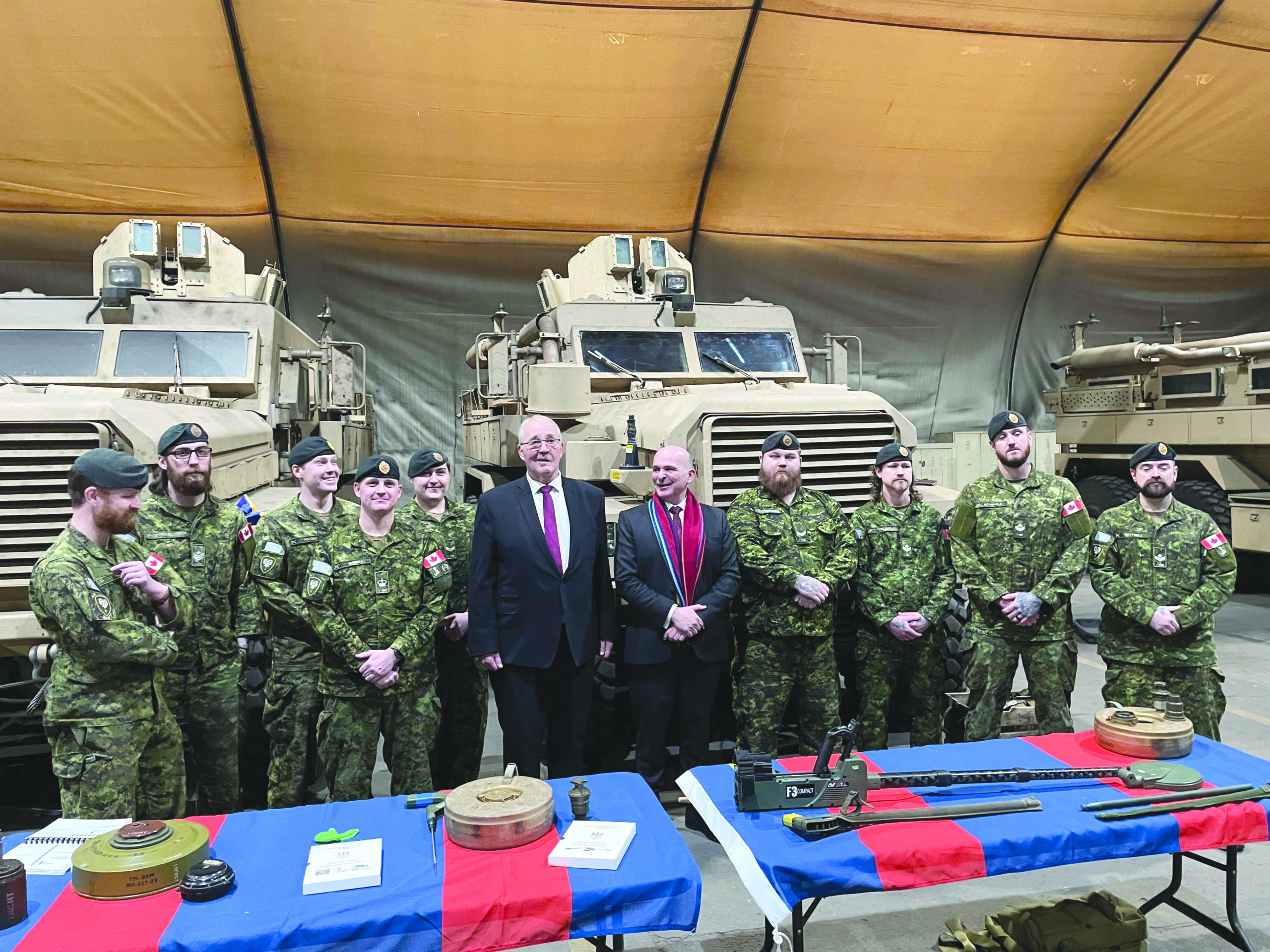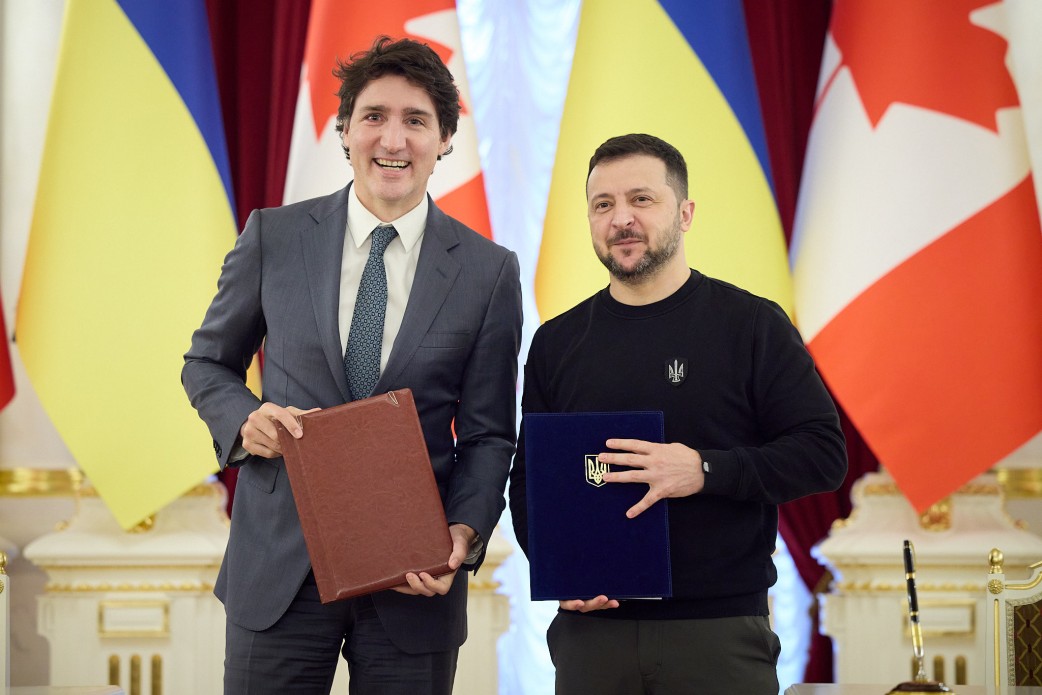Last week, the New Pathway interviewed Ihor Kozak, a military expert and defence consultant, decorated veteran of Canada and NATO, and a graduate of prestigious Royal Military College of Canada. Most recently, he has been spearheading not-for-profit initiatives on stabilization and democratization of Ukraine, also advising the Government of Canada and Western media outlets on the Ukraine crisis.
We started off with a question about the Anti-Terrorist Operation:
IK: The ATO forces have been liberating those Ukrainian territories previously captured by Russian special forces, mercenaries and local criminals. Notwithstanding some criticism, in my opinion, to date, their accomplishments have been significant, especially taking into consideration that at the very beginning of the Ukraine-Russia conflict the Ukrainian side had only six thousand of more-less combat-ready troops, very poorly equipped, and essentially not ready for any significant military engagement. The reason behind this issue rests with the Putin-orchestrated and Yanukovych-executed campaign to destroy Ukraine’s very capability to defend itself in order to make it easy for Putin & Co to eventually take over the entire country.
Having recently travelled to Ukraine, including to the Eastern regions and the Ukraine-Russia border, I am very impressed by the latest accomplishments, especially by the youth, who have proven yet again that they are worthy to be descendants of their heroic ancestors.
In short order, Ukraine managed to form a serious, highly motivated and fairly effective volunteer based militia (so called Battalions of Territorial Defence), to call up select reservists, and to form various special forces units to deal with the serious and very unique situation on the ground. Moreover, the people of Ukraine (and the Ukrainian Diaspora of course) mobilized on their own to equip and otherwise support these volunteers with the required materiel, thus closing the gap between the urgent requirements on the front lines and what the Government of Ukraine has been capable of providing. The overall results have been very positive: first of all, Ukraine managed to stop the spread of the Russia-sponsored destabilization beyond Donetsk and Luhansk regions; and, secondly, to date, the ATO forces have liberated most of the territory previously controlled by the terrorists.
NP: In your opinion, how have the Ukrainian military strategists done so far?
IK: Initially, it was obvious that both the transitional Government and the Ukrainian forces were shocked, confused and reluctant to engage in any significant military action. Personally, I was not surprised to see that. First of all, no one was prepared for such an aggressive move on the part of Russia. Secondly, most Ukrainians were not prepared for open confrontation with Russia, either because they still viewed Russia as a friendly state or because they were afraid of Russia’s military might. Thirdly, to a large extent Ukrainian political, government and business elites were either infiltrated by the Russian secret services, had strong economic and other ties with Russia, were genuinely pro-Russian, or simply preferred to take a neutral stand – all in all, many of them were pretty much useless as far as the defence of Ukraine’s national interests went. Fourth, at the beginning of the conflict Ukraine had very little in terms of military capability and other required resources. And finally, very few in Ukraine knew how to deal with the so-called asymmetric threat and hybrid-style warfare utilized by Russians.
Currently, the overall strategy of isolating and destroying the terrorists, and re-gaining the occupied territories as soon as possible is the correct one – it’s the only language the Russian invaders will understand and respect. I am also glad to see that the ATO leadership has lately been putting emphasis on intercepting and destroying re-supplies coming from Russia as without closing these corridors the war can drag on forever, eventually becoming a so-called ‘frozen conflict’ – something Moscow is likely attempting to achieve now.
Finally, I am pleased to see that Ukraine has begun paying attention to such aspects of modern warfare as physiological operations, winning of the ‘hearts and minds’, etc. Whether we are talking about the closure of Russian propaganda TV channels, conducting information campaigns, or attempting to promptly deliver humanitarian support to the liberated territories – all of these actions are as important as the bona fide military operations. From my experience, modern Western militaries always put significant emphasis on this type of work. Judging by the reaction of the local people in Slovyansk, these initiatives seem fairly successful.
Obviously, there are still shortfalls. The biggest one I observed is in terms of a certain lack of coordination and decision making between various Ukrainian military, para-military and special units in the operational theatre, and between different departments. According to Western military doctrine and practises, Command & Control is one of the most important aspects of any military campaign. In Ukraine, however, this important element is still not properly established, which is understandable considering how unprepared Ukrainian forces were for this war, how unconventional this conflict is, and how rapidly it has been evolving. Having said that, I see that conceptually they are now understanding the issue, and are beginning to work on its proper implementation, which will take time, but there is no doubt in my mind that they are on the right track.
NP: The ATO has seemingly been ‘encircling’ Donetsk and Luhansk for a couple of weeks now – have they now encircled the two cities and what would their next move be? Can this turn into another Stalingrad situation?
IK: Luhansk is completely encircled, Donetsk is almost encircled. The next move will have to be the liberation of the actual cities, which is the toughest part as the ATO forces will have to engage in urban combat, the most difficult of all. The issue gets even more complicated because the terrorists are waging a very dirty war, for instance using civilians as human shields or utilizing civilian infrastructure as their fire bases, while the Ukrainian forces are doing everything possible to avoid civilian casualties and destruction.
No, there will be no ‘Stalingrad’. Liberation of Slovyansk is case in point. The reason is very simple – the so called ‘rebels’ are not rebels at all, but foreign invaders, ruthless mercenaries and local criminals, and as such have nothing to defend in the occupied Ukrainian cities, nor do they have much of support from the local residents. As a matter of fact, there is already clear evidence that some bandits have begun fleeing from Luhansk and Donetsk, as they have previously done in Slovyansk and other cities. Hopefully, the trend will continue, which would allow for the occupied cities to be liberated more rapidly, and for the casualties to be minimized.
NP: NATO has also been saying a lot during this time, but will it (or can it) help Ukraine’s army in a meaningful way (not just the words)?
IK: Unfortunately, Ukraine is not a NATO member, and thus the Alliance has no obligation to protect Ukraine per se. Additionally, Europe, generally speaking, is still unprepared for, and is not willing, to engage in any serious conflict with Russia. Under current circumstances, I do not foresee NATO providing Ukraine with the so-called ‘boots on the ground’ military assistance. To this end, I would not want to see people in Ukraine have unrealistic expectations that NATO will soon send its military forces to the Ukraine-Russia border to stop Putin’s aggression. Ukrainians must rely on themselves first and foremost.
Having said that, the following three points should still hold true. First, should the situation in Ukraine change for the worse – i.e. should Russia launch a full-scale military invasion of mainland Ukraine, the West and NATO would have little choice but to react in a much more aggressive manner. Two, I foresee that, in addition to their current strong political and economic support of Ukraine, Western countries’ military assistance will not only continue, but will be substantially increased over time, on all fronts – in terms of equipment, technologies, training, intelligence, financing, etc., at the end of the day resulting in the West helping Ukraine to create a truly powerful, modern and professional military, border control, interior, security, intelligence and police capabilities.
Finally, I envision a reasonably high probability for Ukraine to eventually become a NATO member. All of the above should happen to ensure the very security and stability of Europe and beyond, and to re-establish global balance of power.
NP: How can Ukraine close the border with Russia in the Luhansk oblast which is seemingly the origin of the terrorist’s weapons supply?
IK: At this point in time it is practically impossible for Ukraine to completely shut down its two thousand or so kilometers of border with Russia, as it would be a tremendous undertaking, requiring a lot of manpower, financial resources, unique technologies and time, none of which are in Ukraine’s disposal at the moment. The ATO forces have been relatively successful in controlling crossing points and select segments of the border, but any talks about completely shutting down the entire border is nothing more but empty rhetoric.
At this stage, all the Ukrainian side can do is, first and foremost, detect the illegal crossings from the Russian side using information from its Western allies (such as satellite intelligence), Unmanned Aerial Vehicles, and on-the-ground border control and military reconnaissance units. Then, with the help of aviation, artillery and special forces, these columns of enemy troops and equipment can be intercepted and destroyed. As a matter of fact, lately, Ukrainian forces have been doing just that and with significant success, notwithstanding Russia’s exponentially increasing activity in re-supplying its terrorists. A couple of days ago, President Poroshenko spoke of one such major successful operation. The task of shutting down the boarder completely will, likely, still remain a necessity for years to come. The US solution on its border with Mexico or Israel’s approach in the Gaza region are good examples. In addition to significant time and effort, however, this will take serious resources and modern Western technologies. For that reason this is one of the top issues my colleagues from the Ukrainian Diaspora in Canada and the US and I have been working on with our governments. Canada, by the way, has already begun delivering to Ukraine its surveillance equipment, which was flown to Boryspil airport in Kyiv from the Canadian Forces Base Trenton just a few days ago.
Share on Social Media

































